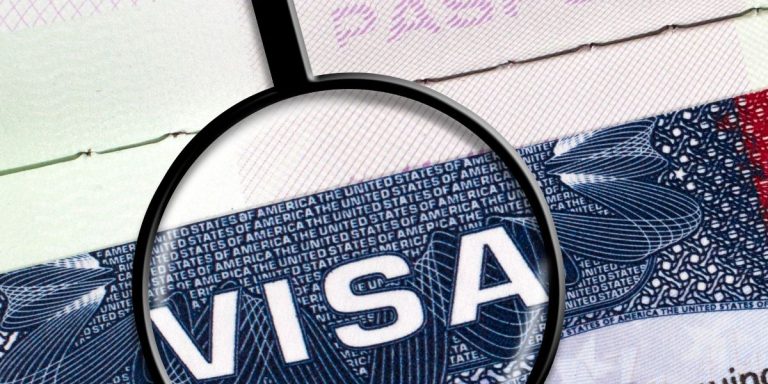Solo Traveler’s Guide to Independent Trip Planning
Embarking on a solo journey can be an exhilarating and life-changing experience. However, planning a trip as a solo traveler requires careful consideration and preparation to ensure a safe and enjoyable adventure. In this comprehensive guide, we will walk you through every aspect of independent trip planning for solo travelers, providing valuable insights and expert advice to make your journey a memorable one.
Setting Your Travel Goals
Before you start packing your bags, it’s essential to define your travel goals. What do you want to achieve during your journey? Whether it’s exploring new cultures, discovering breathtaking landscapes, or simply unwinding, clarifying your objectives will help shape your trip.
When setting your travel goals, take into account the experiences you wish to have. Do you want to immerse yourself in local culture, relax on pristine beaches, or embark on adventurous hikes? Your goals will serve as a roadmap for your entire trip.
Additionally, consider the duration of your journey. Are you planning a short getaway or a long-term adventure? Understanding the timeframe will assist in crafting a realistic itinerary.
Budgeting and Financial Planning
Solo travel doesn’t have to break the bank. Learning how to create a budget is a fundamental aspect of trip planning. Your budget should cover various aspects of your journey, including transportation, accommodation, food, activities, and emergency funds.
Start by researching the cost of living in your chosen destination. This will give you a rough estimate of daily expenses. Remember to factor in unexpected costs, such as medical emergencies or lost belongings. Having a financial cushion will provide peace of mind throughout your journey.
Destination Research
Choosing the right destination is a pivotal decision for solo travelers. It’s essential to conduct thorough research to ensure your chosen location aligns with your interests and safety requirements.
Consider the following when researching destinations:
- Safety: Prioritize safety by checking travel advisories and reviews from other solo travelers.
- Cultural attractions: Explore the cultural richness and historical significance of the destination.
- Personal interests: Align the destination with your passions, whether it’s art, history, nature, or adventure.
- Accessibility: Assess ease of travel, visa requirements, and transportation options.
Your destination should resonate with your desires and cater to your comfort level as a solo traveler.
Accommodation Booking
Choosing the right accommodation among many great apartments for rent is crucial for a successful solo journey. Solo travelers have a plethora of options, each with its unique advantages.
Hostels: Ideal for budget-conscious travelers seeking a social atmosphere. Guesthouses: Offers a more intimate setting and local experience. Boutique Hotels: Provides comfort and luxury for solo travelers who prefer solitude. Airbnb: Allows you to stay in a home-like environment and interact with locals.
Ensure you read reviews and check safety ratings when booking accommodations. Prioritize safety and comfort, and consider factors like location, amenities, and guest reviews.
Solo Travel Safety Tips
Safety should be your top priority when traveling alone. Preparing for potential risks and taking precautions can make a significant difference in your journey’s outcome.
Some safety tips for solo travelers include:
- Share your itinerary with a trusted friend or family member.
- Keep a copy of essential documents, such as passports and visas, in a secure location.
- Stay vigilant and aware of your surroundings, especially in unfamiliar areas.
- Avoid walking alone at night in poorly lit or sketchy areas.
- Trust your intuition; if a situation feels unsafe, remove yourself from it.
By following these safety guidelines, you can significantly reduce the risks associated with solo travel and enjoy your adventure with peace of mind.
Packing Essentials
Packing efficiently is an art that solo travelers must master. Overpacking can lead to unnecessary stress and inconvenience, while underpacking might leave you unprepared for certain situations.
Consider the climate and activities of your destination when packing. Essentials include clothing suitable for the weather, toiletries, a first-aid kit, and travel adapters for your electronic devices.
Travel insurance is another critical aspect of preparation. Ensure that you have coverage for medical emergencies, trip cancellations, and lost belongings. Keep important documents, such as your passport and travel insurance policy, in a waterproof and secure pouch.
Itinerary Planning
Crafting a flexible itinerary is essential for solo travelers. While it’s essential to have a plan, leaving room for spontaneity can lead to unexpected adventures.
Start by outlining your must-see attractions and activities. Allocate specific days or time slots for these experiences. Then, leave open days in your itinerary to explore off-the-beaten-path places or simply relax and soak in the local ambiance.
Remember that over-scheduling can lead to exhaustion. Balance your days with periods of rest and leisure. Be open to serendipitous encounters and last-minute changes—it’s often these moments that make solo travel truly memorable.
Solo Dining and Food Adventures
Dining alone can be a delightful experience when approached with an open mind. Embrace the opportunity to savor local cuisine, try street food, and discover hidden culinary gems.
Tips for solo dining include:
- Research local dishes and specialties.
- Visit bustling markets and food stalls for authentic flavors.
- Bring a book or journal to enjoy your meal in good company.
- Don’t be afraid to strike up conversations with fellow diners or restaurant staff.
- Use dining as a chance to immerse yourself in the local culture through food.
Solo dining allows you to relish the flavors of your destination and connect with the community in a unique way.
Navigating Language Barriers
Overcoming language barriers is a common concern for solo travelers, but it shouldn’t deter you from exploring new cultures.
To navigate language barriers effectively:
- Learn basic phrases and greetings in the local language.
- Use translation apps to facilitate communication.
- Carry a pocket-sized translation dictionary.
- Embrace non-verbal communication, such as hand gestures and facial expressions.
- Download offline maps and transportation apps for easy navigation.
Don’t let language differences hinder your ability to connect with locals and fully experience your destination.
Solo Travel Photography
Capturing memories through photography is an integral part of solo travel. With the right approach, you can document your journey and share it with friends and family.
Photography tips for solo travelers include:
- Invest in a lightweight and versatile camera.
- Learn the basics of composition and lighting.
- Use a tripod or selfie stick for self-portraits.
- Engage with locals to capture authentic moments.
- Organize and back up your photos regularly.
Photography not only preserves your memories but also allows you to share your solo travel experiences with a wider audience.
Connecting with Locals
Immersing yourself in the local culture is one of the most rewarding aspects of solo travel. Connecting with residents and experiencing their way of life can enrich your journey.
Ways to connect with locals include:
- Participating in cultural events, festivals, and workshops.
- Visiting local markets and artisans’ shops.
- Attending community gatherings and celebrations.
- Volunteering for local projects and initiatives.
- Engaging in conversations and sharing stories with residents.
Building these connections can lead to meaningful cultural exchanges and a deeper understanding of your destination.
Solo Travel Challenges and Solutions
Solo travel can present various challenges, but with the right mindset and preparation, you can overcome them and have a fulfilling journey.
Common challenges and solutions include:
- Loneliness: Combat loneliness by joining group activities, connecting with fellow travelers, and staying in social accommodations like hostels.
- Homesickness: Stay connected with loved ones through regular communication, journaling, and engaging in activities that remind you of home.
- Decision Fatigue: Simplify decision-making by planning ahead, setting priorities, and allowing for spontaneity when it matters most.
Understanding these challenges and having strategies in place will make your solo travel experience more enjoyable.
Traveling Solo as a Woman
Female solo travelers may have specific concerns and considerations when planning their journeys. Safety, hygiene, and cultural sensitivities are vital aspects of a successful trip.
Safety tips for female solo travelers include:
- Dress modestly and respect local customs.
- Use female-only accommodations when available.
- Carry personal safety devices, such as a whistle or self-defense tool.
- Be cautious when accepting invitations from strangers.
- Trust your instincts; if a situation feels uncomfortable, remove yourself from it.
Female travelers can have incredible solo adventures while prioritizing their well-being and cultural sensitivity.
Solo Travel and Technology
Technology plays a significant role in modern solo travel, aiding navigation, communication, and entertainment.
Useful tech tools for solo travelers include:
- Navigation apps like Google Maps and Maps.me.
- Language translation apps such as Google Translate.
- Mobile banking apps for managing finances.
- Social media and travel forums to connect with other travelers.
- E-readers and entertainment apps for downtime.
Embrace technology to enhance your solo travel experience while staying connected to the world.
Sustainable Solo Travel
Responsible and sustainable travel is essential to protect our planet and the communities we visit. As a solo traveler, you can make environmentally conscious choices.
Tips for sustainable solo travel include:
- Reduce plastic waste by carrying a reusable water bottle and shopping bag.
- Support eco-friendly accommodations and tour operators.
- Conserve energy and water in your accommodations.
- Respect wildlife and natural habitats by following responsible tourism guidelines.
- Engage in community-based tourism to support local economies.
By adopting sustainable practices, you can minimize your environmental impact and contribute positively to the places you visit.
Staying Healthy on the Road
Maintaining your health and well-being during your journey is crucial for a successful solo adventure.
Stay healthy by:
- Staying hydrated and eating nutritious meals.
- Exercising regularly, whether it’s hiking, yoga, or simply walking.
- Carrying a basic first-aid kit for minor injuries.
- Taking necessary vaccinations and medications.
- Staying informed about local health risks and precautions.
Prioritizing your health ensures you can fully enjoy your solo travel experience.
Solo Travel Etiquette
Navigating the world of solo travel requires respect for local customs and traditions. Being a responsible and respectful traveler enhances your journey and fosters positive interactions with locals.
Etiquette tips for solo travelers include:
- Dress modestly and appropriately for the culture.
- Learn and follow local customs, greetings, and gestures.
- Ask for permission before taking photos of people.
- Respect religious sites and rituals.
- Minimize noise and be considerate of fellow travelers in shared spaces.
By practicing good etiquette, you can create meaningful connections with locals and leave a positive impression on your destination.







